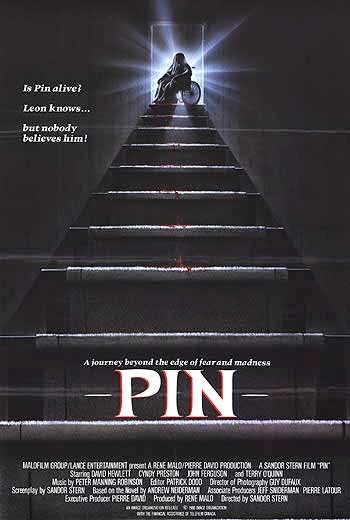
Oleanna—William H. Macy and Debra Eisenstadt are the only two actors in this film. Watching “Oleanna” is like watching a filmed play. That is not an insult to this film. The play, in this instance, is so riveting, the dialogue is so fluid. David Mamet’s dialogue in this 1994 film is like a wonderfully harmonious piece of music. “Oleanna” is not a comfortable film. It is about a female university student who has an issue with a grade in one of her classes, a class taught by a professor played by Macy. The conversation begins civilly enough, however, throughout the course of the film, the visits to the professor’s office become more and more uncomfortable as the student grows more unreasonable and the professor becomes more distracted my other events in his life. “Oleanna” is one of those films that invites great conversation after having viewed it.

Jim, the World’s Greatest—I have never seen a better film, or many films at all, about the relationship between two brothers. Gregory Harrison as Jim and Robbie Wolcott as his younger brother, Kelly, are outstanding in Don Coscarelli’s 1976 film debut. Coscarelli would go on to direct another great film about young people entitled “Kenny and Company” in 1977, the “Phantasm” films and “Bubba Ho-Tep.” Jim and Kelly’s father, played by Angus Scrimm (billed in this film as Rory Guy), is an alcoholic widower who cannot his temper. Scrimm’s performance is also exemplary in this film. It’s a shame that he is pretty much only known for playing “The Tall Man” in the “Phantasm” films, films in which he does a great job (especially in “Phantasm: Oblivion,” the fifth film in the series and the one in which he gets an opportunity to add some range to the character. Really, he does. Don’t laugh. I can hear you. Scrimm’s performance in “Jim, the World’s Greatest” is outstanding as are those by the rest of the cast. This is a great film, which, hopefully, at some point, will get more exposure.

My Son, My Son, What Have Ye Done—the opening credits announce this as “David Lynch Presents, A Werner Herzog Film.” This is pretty much all you need to know. Your tolerance for Lynch and Herzog will dictate whether or not you have any interest in this 2010 film. Michael Shannon stars as a man who has committed a crime. Willem Dafoe stars as the detective trying to piece together clues. The great Grace Zabriskie plays Michael Shannon’s mother in an unforgettably and wonderfully bizarre performance. If you like David Lynch or Werner Herzog, you will likely enjoy this.

Anguish—Just see it.

The Music of Chance—Mandy Patinkin and James Spader play two guys who go to the mansion of two other guys (Charles Durning and Joel Grey) to play a high-stakes poker game. This description of the film would not have appealed to me at all, however, luckily, back in 1994, I watched the Siskel and Ebert episode on which they told me that this was a very good film. As was almost always the case, they were correct. It’s not just about a poker game. This would be lame. All the performances are great. Look for it.

The Corporation—a documentary which compares a corporation to a psychopath. A more correct analogy has never been made. This is a thorough examination of how companies manipulate and deceive so as to make money. Liberals unite!

The Times of Harvey Milk—a fantastic 1984 documentary about San Francisco city supervisor, Harvey Milk, who was killed in 1978. Sean Penn played Harvey Milk in the very good 2008 film, “Milk.”
























































































